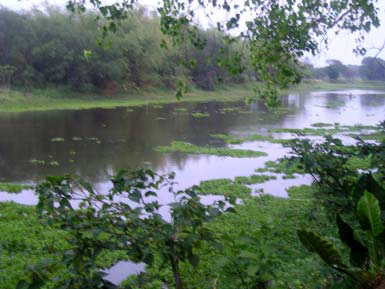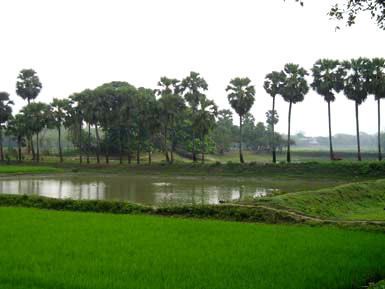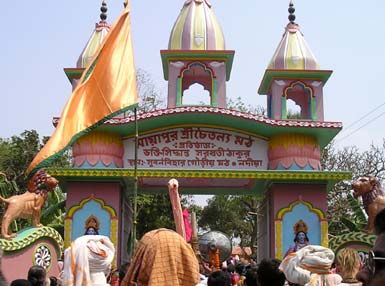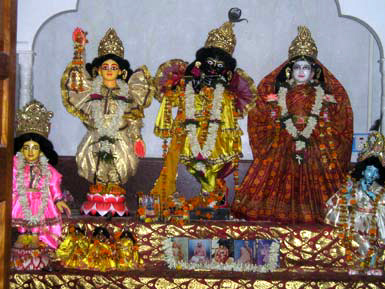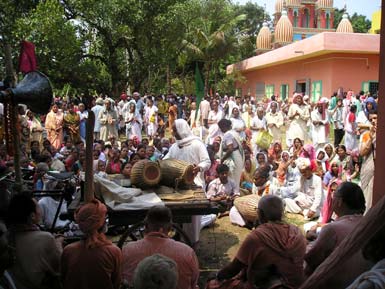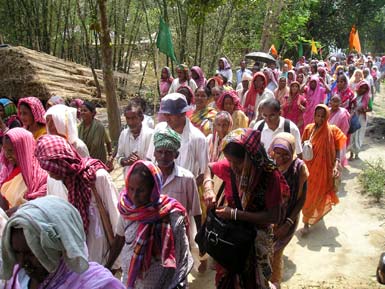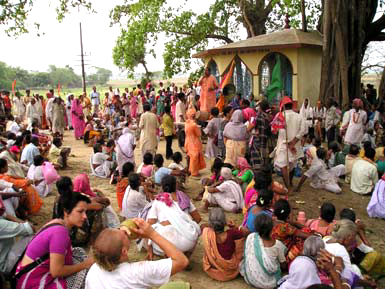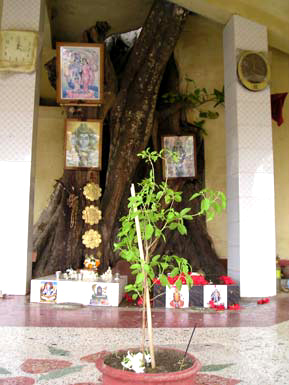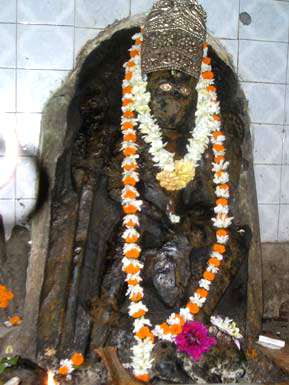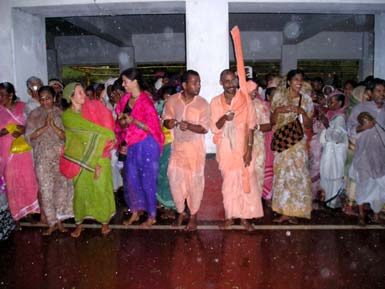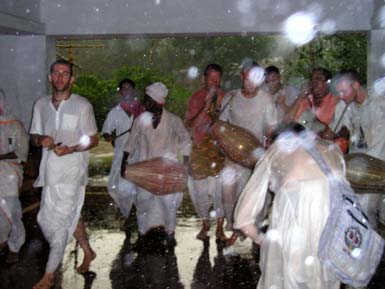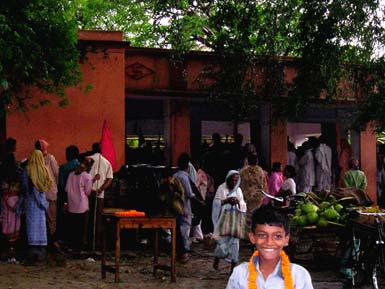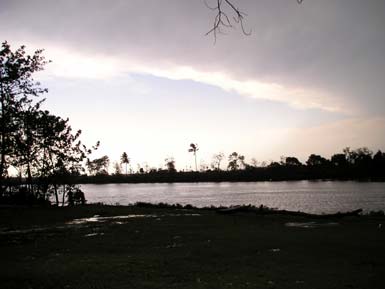
...continued:
"'Thus the soul, ignorant of the laws of action
and reaction, is tossed by the waves of death's dark ocean.
When he thinks of how to escape from his pains, he tries
performing the sacrificial rituals of the Vedas for good
karma. Sometimes he accepts the eightfold path of yoga or
attempts self-realisation through knowledge of Brahman.
Sometimes he tries to extricate himself with the help of
reason. None of these paths, however, prove successful,
and he remains unmindful of the treasure within his own
soul.
"'While continuously wandering throughout this material
universe, one who is fortunate achieves the company of saints
and imbibes from them faith (sraddha) in Krishna consciousness.
In the company of those saints (sadhu-sanga), he worships
and serves Sri Krishna (bhajan), giving up his former bad
habits (anartha-nivrtti). His devotion gradually becomes
firm (nistha). As he advances further he develops a real
taste for the service of the Lord (ruchi), which becomes
unflinching attachment (asakti), maturing in ecstatic affection
(bhava), and finally divine love (prema). These are the
stages in the development of pure devotion to Krishna.
"'Hearing, chanting, remembering, serving, worshiping,
bowing down, servitude, friendship, and self-surrender --
these are the ninefold processes of bhakti, or dedication
to Godhead. One who performs these in the association of
devotees attains Krishna-prema, divine love.
"'You are most fortunate, O king, for you are a resident
of Nabadwip-dham. By living in the holy land, you have begun
your good fortune, for here you can easily have the association
of saints. As your faith grows in the company of saints
and you sing the Holy Name and wonderful qualities of Sri
Krishna, divine love will rise like the sun within your
heart.
"'But in Kali-yuga even greater wealth will be available
here in Nabadwip. At that time Sri Krishna, along with his
associates, will descend to perform his Pastimes as Sri
Chaitanya Mahaprabhu. He who calls on the Name of Sri Chaitanya
will quickly receive the mercy of Krishna and reach the
divine abode of Vrindavan. One who goes on worshiping Krishna
without calling for the help of Sri Chaitanya will reach
Krishna only after a long time. But one who takes the Name
of Sri Chaitanya quickly attains Krishna, for the Holy Name
of Chaitanya Mahaprabhu is so merciful that He accepts no
offenses.'"
Nityananda Prabhu continued his narration: "Having
spoken thus, Narada became overwhelmed and began crying
out the Name of Sri Chaitanya, dancing, and chanting 'Gaurahari
bol, Gaurahari bol, Gaurahari bol!' Narada's mystical lute,
his vina, also began to sing, 'O Gaurahari! When will the
blessed Kali-yuga come?'
"With this Narada went off, and divine love arose like
the morning sun within the heart of King Suvarna Sen. Crying
the Name of Chaitanya Mahaprabhu like a madman and begging
love of Godhead from the devotees, he became free from all
material desires. Later, in his sleep, the king saw Sri
Gaura and Gadadhar with Their eternal associates and devotees
dancing in the courtyard. Surrounding the golden form of
Sri Chaitanya Mahaprabhu, the multitudes were shouting 'Hare
Krishna!' while dancing and embracing one another.
"When he awoke from his dream, the king began weeping
in great anguish out of separation from Sri Chaitanya Mahaprabhu.
Suddenly a divine voice spoke from the heavens, saying,
'O king, when I appear on Earth, you will be among My associates.
Your name will be Buddhimanta Khan, and at that time you
will attain service in the holy abode of Nabadwip-dham at
the lotus feet of Sri Chaitanya Mahaprabhu.' Hearing the
voice from the sky, King Suvarna Sen composed himself and
began to worship Sri Chaitanya."
--Sri Nabadwip Dham Mahatmya, Chapter Seven

